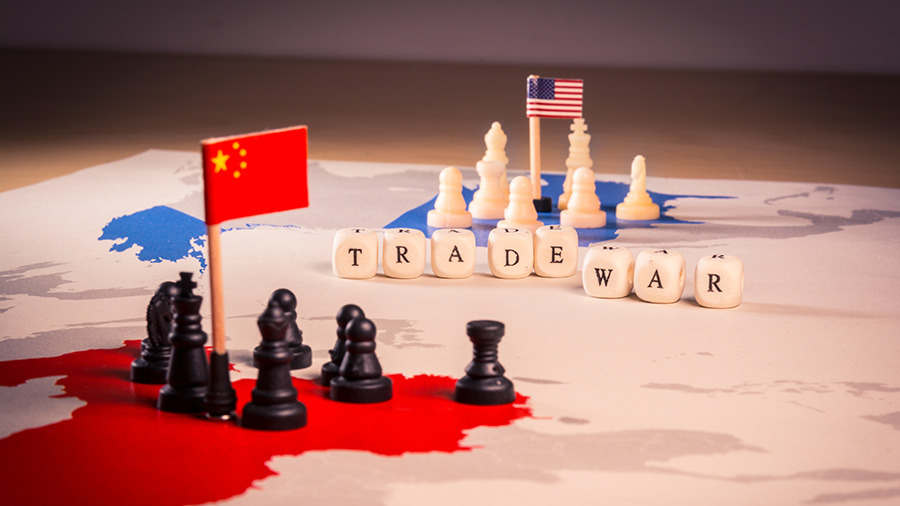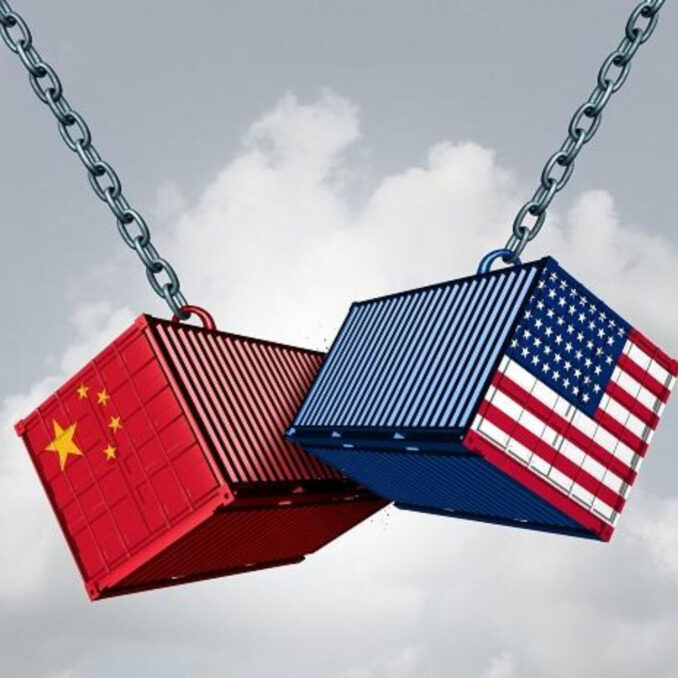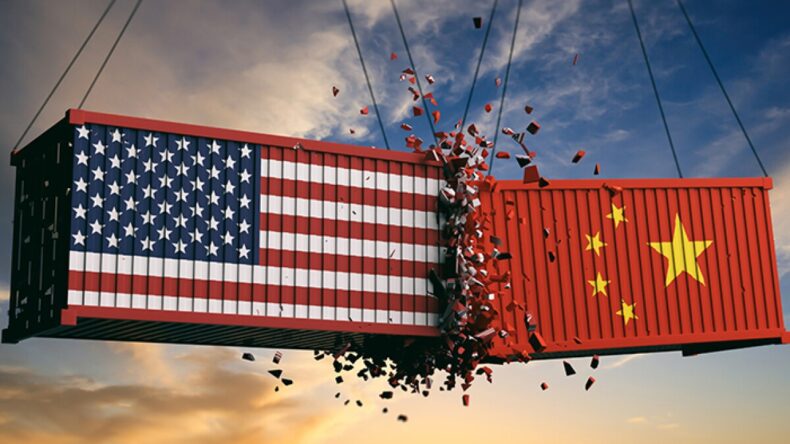China has escalated its trade war with the United States by imposing export restrictions on certain metals crucial to the semiconductor, electric vehicle, and high-tech industries. The move, which is set to take effect on August 1, has raised concerns about potential disruptions in global supply chains. The Chinese commerce ministry stated that the measure is aimed at safeguarding national security, but analysts view it as a response to the United States’ efforts to curtail China’s technological advancements.
The announcement caught companies off guard, prompting them to take immediate action to secure supplies. A semiconductor wafer manufacturer in the United States revealed that it was in the process of applying for export permits to reassure investors, while a Chinese producer of germanium reported a surge in buyer inquiries overnight, accompanied by a sharp increase in prices. Peter Arkell, Chairman of the Global Mining Association of China, noted that China has dealt a significant blow to American trade restrictions in a vulnerable area.

Questions have arisen regarding the timing of this measure, as it coincides with the visit of U.S. Secretary of Treasury Janet Yellen to Beijing. Some industry insiders speculate whether the move was intended to influence the outcome of the visit or potentially prompt its cancellation. Furthermore, there are concerns that China may impose additional restrictions on rare earth exports, as it did twelve years ago during a dispute with Japan. Rare earth metals are crucial components in electric vehicles and military equipment, and China currently dominates their production.
Gallium and germanium, two of the metals subject to export controls, are examples of minor metals that play a vital role in a wide range of technological products. China is the leading global producer of these metals, and it would be unrealistic to expect another country to replace its supply in the short or even medium term, according to Arkell.
China’s decision to restrict exports of certain metals has heightened tensions in the ongoing U.S.-China trade war and raised concerns about potential disruptions to global supply chains. The action is widely interpreted as a retaliatory measure against the United States’ attempts to curb China’s technological advancements, and its timing has led to conjecture about its potential consequences for important diplomatic meetings. Moreover, concerns have emerged regarding the possibility of China expanding export controls to include rare earth metals, which would have additional ramifications for industries that heavily rely on these essential resources.
Export Permit Applications Amid Metal Export Curbs
AXT Inc, a U.S. semiconductor wafer manufacturer with operations in China, announced that its Chinese subsidiary, Tongmei, would seek permits to continue exporting gallium and germanium substrate products. The company is actively pursuing the necessary permits to minimize disruptions to its customers, according to AXT CEO Morris Young.
Meanwhile, a manager at a Chinese germanium producer reported receiving multiple inquiries from buyers in Europe, Japan, and the U.S. These buyers are seeking to stockpile the products before the export controls come into effect, anticipating a potential two-month wait to obtain export permits. Consequently, prices in both the domestic and export markets have surged to 10,000 yuan ($1,380) per kg and over $1,500 per kg, respectively.
While the industry had expected some restrictions on metal exports, the timing of the announcement took them by surprise. Certain downstream users, who have long-term sales contracts, expressed worries about potential price hikes in raw materials, which could lead to increased production costs and potential losses. However, these users chose not to disclose their identities due to the sensitivity of the matter.
Government officials in Taiwan and South Korea downplayed concerns regarding the impact of the export controls. Taiwan’s Economy Minister Wang Mei-hua mentioned that the short-term consequences would be minimal but emphasized the need for close monitoring of long-term implications. South Korea’s industry ministry assured that the country possesses sufficient stockpiles of gallium and alternative sources of germanium.
although the industry had expected some export controls, the timing of the announcement caught them off guard. Certain downstream users expressed concerns about rising raw material prices and potential losses. Government officials in Taiwan and South Korea minimized the disruptions caused by the export curbs, stating minimal short-term impacts and adequate reserves of critical metals.
Shares of metal producers experienced a surge on Tuesday, with Yunnan Lincang Xinyuan Germanium Industry Co rising 10% and Yunnan Chihong Zinc & Germanium Co climbing 7%. Additionally, Australian rare piles of earth producers, including Lynas Rare Earths, witnessed a rally in their shares as investors speculated on the possibility of further restrictions being imposed.
AXT Inc’s Chinese subsidiary is applying for export permits to continue supplying gallium and germanium products, while buyers are rushing to secure stock before the export controls take effect. Concerns have been raised about potential price increases and production cost hikes for downstream users. Government officials in Taiwan and South Korea downplayed the anticipated disruption, while metal producers’ shares soared. Australian rare piles of earth producers also experienced a rally as investors speculated on additional restrictions in the future.
Tensions Rise as China Implements Export Controls
China’s recent imposition of export controls on certain metals used in high-tech industries has raised concerns about an escalation in tensions between China and the United States. At the same time, these controls align with Washington’s ongoing discussions regarding additional limitations on the export of advanced microchips to China, which come after a series of prior restrictions. The United States and the Netherlands are expected to further limit sales of chipmaking equipment to Chinese chipmakers this summer, aiming to prevent China’s military from accessing advanced technology.
China’s latest move can be seen as a retaliatory response to U.S. pressure on the chip industry. In May, Beijing prohibited certain domestic sectors from purchasing products from U.S. memory chipmaker Micron. Analysts at Jefferies perceive China’s export controls as a significant countermeasure, following the previous ban on Micron.
The analysts caution that there is a considerable risk of rapid escalation in tensions between the United States and China.

The restrictions on critical metals used in high-tech industries, along with the potential escalation in tensions, highlight the growing trade war between the world’s two largest economies. This development has significant implications for global supply chains and the technology sector. It also underscores the importance of rare earth metals, which are crucial for various industries, including electric vehicles and military equipment.
As the United States and China continue to engage in a battle for technological supremacy, the situation remains fluid and unpredictable. The implementation of export controls by both sides is likely to have far-reaching consequences for various industries and could further strain bilateral relations. The international community will closely monitor the developments and their impact on global trade dynamics, as well as potential disruptions in supply chains.













